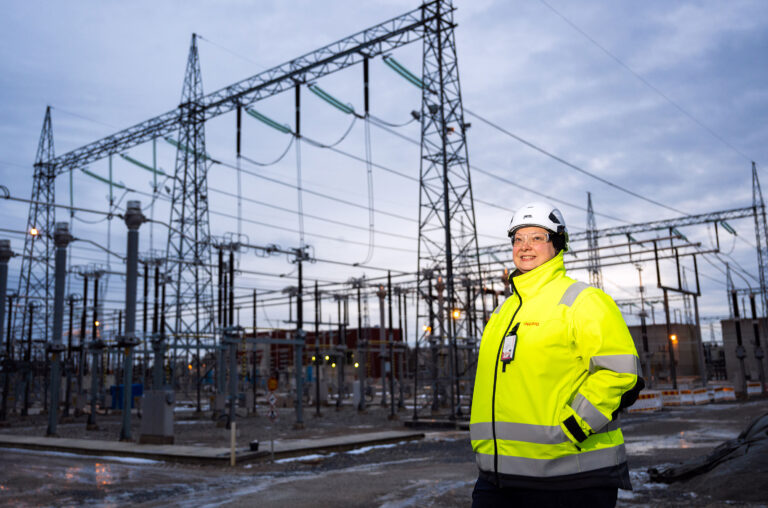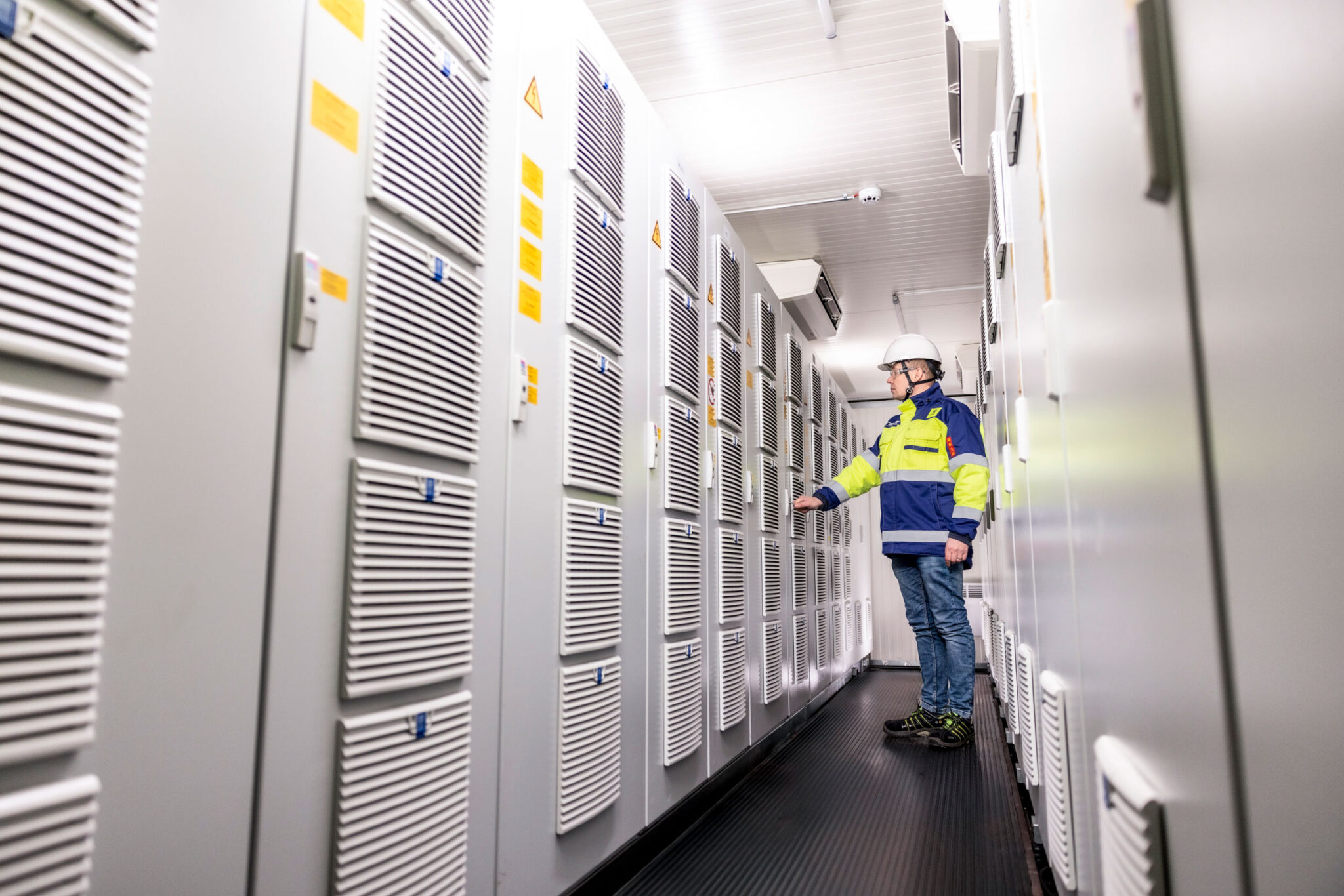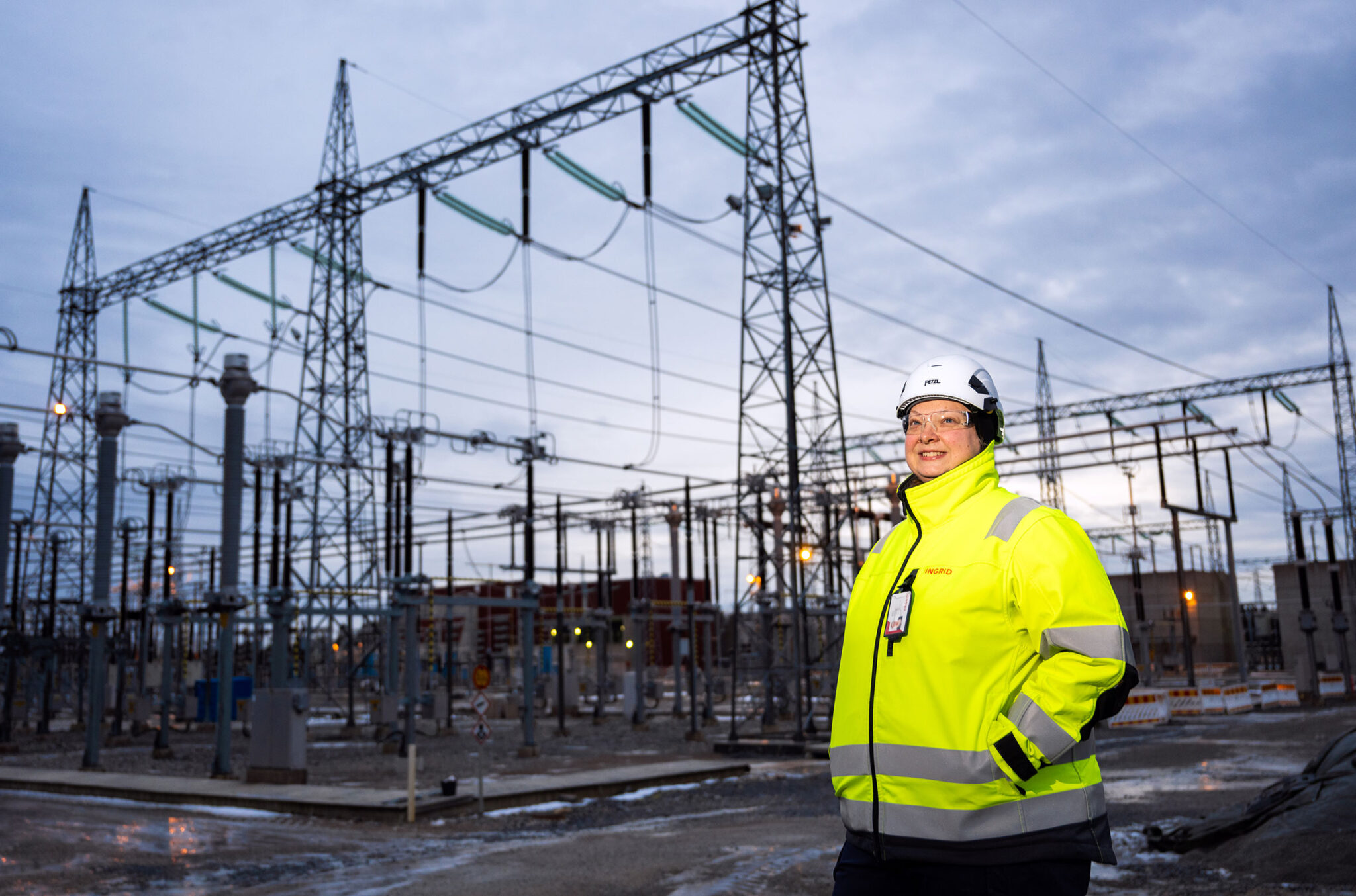Electricity producers and consumers plan their operations as thoroughly as possible in advance so that electricity sales correspond to production and purchases correspond to consumption. The goal is to keep the grid balanced under all circumstances.
However, changes occur constantly, so Fingrid maintains an electricity reserve markets: the reserves fine-tune the balance of the power system during each hour of the year.
The need for reserves is growing all the time, and the spotlight has now shifted towards consumers in addition to producers. For example, the reserve market would like to attract more industrial sectors, logistics hubs, or data centres that can increase or decrease their electricity consumption according to the power system’s needs.
“Flexibility could be found in the main or subsidiary processes of industrial plants, refrigeration, heating, or ventilation: the reserve market welcomes all types of flexible consumption,” says Maria Joki-Pesola, Head of Balancing Markets at Fingrid.

The reserve market represents a business opportunity for companies. It will not be their primary business, but it can facilitate the cost-efficient use of electricity, as companies can earn money for their flexibility.
Lidl’s virtual power plant consolidates reserves from its stores
Lidl Finland has participated in the reserve market since 2020 and sold its electricity flexibility to Fingrid. This has allowed the large retail chain to balance its high energy costs.
“It is worth looking into the opportunities the reserve market can offer, especially if your company consumes a lot of energy. Flexibility can be found in surprising places,” says Katri Tuovinen, Energy Manager at Lidl Finland.
Approximately 140 Lidl stores have been consolidated to create a virtual power plant that combines electrical loads. The battery energy storage system at Lidl’s distribution center in Järvenpää is also involved in the reserve market.
“We have now added our ventilation machines to the virtual power plant, and we are constantly thinking about other sources of flexibility. For example, the electric boilers and the solar panels on the roofs of our stores could provide further flexibility,” Tuovinen considers.
Joining the reserve market required Lidl to make investments, but it was able to combine the purchases with renovations of the building automation systems in stores. The technical requirements of the reserve market were taken into consideration when the new distribution centre was designed and built.
Lidl has utilised third-party service providers since it began planning to join the reserve market.
“The company does not need its own resources to produce flexibility. The desire to get involved and reduce the company’s energy costs is enough,” Tuovinen says. She adds:
“The reserve market offers a way to become part of the energy transition and contribute to ensuring that the market functions and the power system remains reliable.”
Lumme Energia’s customers get involved
Lumme Energia provides electricity sales services and energy solutions to households and businesses. It is bringing six of its customers’ data centres and several solar power plants into the electricity reserve market with the goal of providing dozens of megawatts of flexibility.
The entry into the reserve market included several technical steps and interactions with different partners and entities.’
“In some cases, we have needed new plans for controlling the entity. However, the initial investments remained moderate. In other words, a small outlay can lead to large returns,” says Olli Partanen, Project Manager of Demand and Production Flexibility at Lumme Energia.
Fingrid offers support for companies entering the reserve market. Partanen also had his questions answered quickly, although he had rather a lot of questions.
Lumme Energia has also noticed that surprisingly many flexible resources can be very valuable.
“The returns can be higher than you would first think. It is worthwhile for companies to examine the opportunities to provide flexibility,” Partanen states.
He says everyone wins in the reserve market.
“The company increases its cash flow, reduces carbon dioxide emissions, and helps Fingrid manage the power system and keep the lights on, even if a fault arises.”







